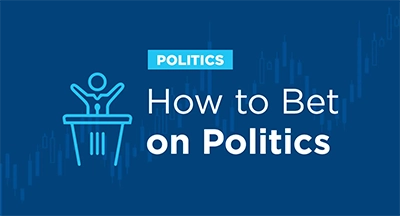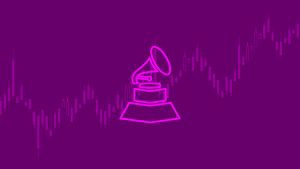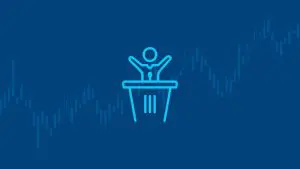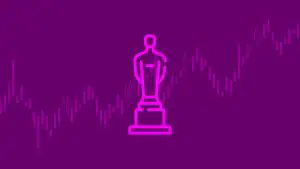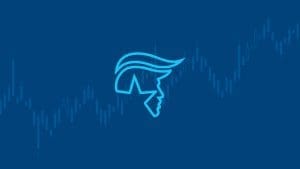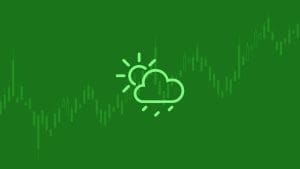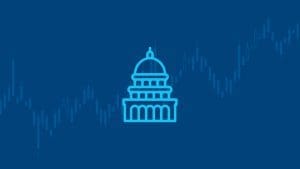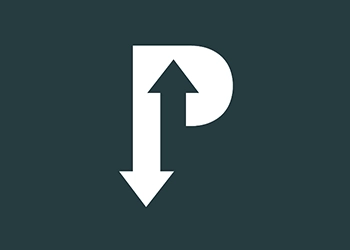Prediction markets are shaking up how fans engage with sports, offering a legal, market-based alternative to traditional sportsbooks that is available in all 50 states. Instead of fixed odds, users trade shares on whether something will or won’t happen—from game outcomes to championship futures and other propositions that aren’t necessarily tied to a game or player performance. In each case, shares act like a mini-stock tied to a sports event, priced by the crowd and settled in real time.
This guide will walk you through everything you need to know: how these markets work, where to trade, what makes them different from sportsbooks, and the strategies that can give you an edge.
What Are Sports Prediction Markets?
Sports prediction markets let users trade contracts on sports outcomes in real time. Each contract is built around a simple yes-or-no question — like Will the Thunder beat the Pacers? Will the Cowboys win the NFC East? Will the NFL ban the tush-push? — you get the gist.
Each share costs between $0 and $1 and pays out $1 if your prediction is correct. The price reflects the crowd’s perceived probability: a contract trading at 65¢ implies a 65% chance of the event happening.
As odds shift, you can buy low, sell high, or just hold to the final whistle.
Sports Prediction Market Example
Let’s say there’s a market: Will the Chiefs win the Super Bowl?
- If “Yes” is trading at 24¢, that means the market gives them a 24% chance of winning.
- You buy 100 shares for $24
- If the Chiefs win, your shares are worth $100, netting a $76 profit (minus fees).
- If they lose, your shares expire worthless.
You can also sell your position mid-season if the market moves in your favor. So if the Chiefs start the season 13-0 and become odds-on favorites, you can sell your shares for a profit without holding your position all the way to the Super Bowl.
Sports Betting vs. Sports Trading
- Legality and Regulation: Sports betting is regulated by states, while sports trading via prediction markets is federally regulated by the CFTC, making it available nationwide.
- Pricing and Odds: Sportsbooks use fixed, American odds (e.g., +200), while prediction markets often price contracts in one-cent increments (e.g., 33¢)
- Cashing Out: Sportsbooks sometimes allow users to cash out early, but it is limited and comes at a cost (lower than fair odds), while traders can cash out anytime before the game is over.
- Parlays and Props: Parlays and props are extremely popular at sportsbooks, but prediction markets have struggled to offer these.
- Game Totals and Spreads: Similarly, regulated prediction markets like Kalshi have yet to offer game totals and point spreads, but that could be changing soon.
Best Sports Prediction Market Sites
Here are some top platforms offering sports-related markets:
- Kalshi – CFTC-regulated, with real-money sports event contracts available in all 50 states.
- Crypto.com – CFTC-regulated, with real-money sports event contracts available in all 50 states.
- Polymarket – Crypto-based and with a wide variety of sports markets and low fees, but not available to U.S. customers.
- Manifold – Free-to-play with fantasy money
- Robinhood – Partnered with Kalshi to offer certain markets, including major sports, but fees are steeper on the popular brokerage app.
Sports Prediction Markets on Kalshi
Kalshi is the most popular U.S.-regulated prediction market to offer real-money trading on sports outcomes. Contracts are framed around yes/no questions, such as:
- Will the Detroit Lions win 12+ regular-season games?
- Will the Thunder win the pro men’s basketball championship?
- Will Ronaldo play in the World Cup?
As of mid-2025, their “sports event contracts” have sparked pushback from gaming interests and tribal regulators, but the startup, which considers Donald Trump Jr. a backer, has largely prevailed in court.
Kalshi’s sports markets are liquid, and they’ve shown signs of enhancing their sports offering, with the possible addition of awards futures (e.g., Who will win NFL MVP?), props, and parlays ahead of the 2025 football season.
Sports Prediction Markets on Crypto.com
Crypto.com was actually the first federally regulated exchange to push the envelope with sports event contracts. Because Crypto.com operates under the Commodity Exchange Act and invokes CFTC jurisdiction, it claims the same federal oversight defense as Kalshi.
Crypto.com’s sports markets are more limited than their competitors’, and their sports prediction market has been much quieter.
Sports Prediction Markets on Polymarket
Polymarket runs on crypto, using the Polygon blockchain, and offers fast-moving, user-created markets that have become popular worldwide.
Though the company is based out of New York City, where their young CEO Shayne Coplan is from, they are actually prohibited from serving U.S. customers—though many have found ways to circumvent the restriction.
The global user base helps create high liquidity in its sports markets, especially for big events such as soccer and tennis. Polymarket also does not charge trading fees, which is a huge benefit for sports traders.
Sports Prediction Markets on Manifold
Manifold is an excellent choice for users who want to test their sports prediction skills without putting real money on the line. Alongside their free-to-play model, there’s also an extremely fun, engaged community, as users can create custom markets for questions they want answered and trade with the platform’s currency, “Mana,” instead of dollars.
Sports Prediction Markets on Robinhood
Robinhood has shown increasing interest in prediction markets, as CEO Vlad Tenev has voiced public support, and the company partnered with Kalshi to launch a limited number of prediction markets on the brokerage app this year.
Some of these markets do include sports, mostly around major events such as the Super Bowl, March Madness, The Masters, and NBA playoffs.
The downside? Robinhood charges a one-cent fee per contract, which is pretty steep and makes it difficult to win money predicting sports long term. If you have a Robinhood account, it’s fine to try out prediction markets on the platform, but we recommend opening an account on Kalshi to get more bang for your buck.
More Sports Prediction Markets to Come?
We’re still early in the game, but there’s no question prediction markets have started encroaching on sportsbook territory — but they haven’t yet replicated parlays, in-game bets, or same-game player props. Legal battles and infrastructure hurdles stand in the way; however, some sportsbook operators see the writing on the wall.
Both FanDuel and DraftKings have mentioned launching their own prediction markets, which could give them access to states like California and Texas that have not yet legalized sports betting. Meanwhile, other companies such as SIPredict have explored launching similar platforms.







